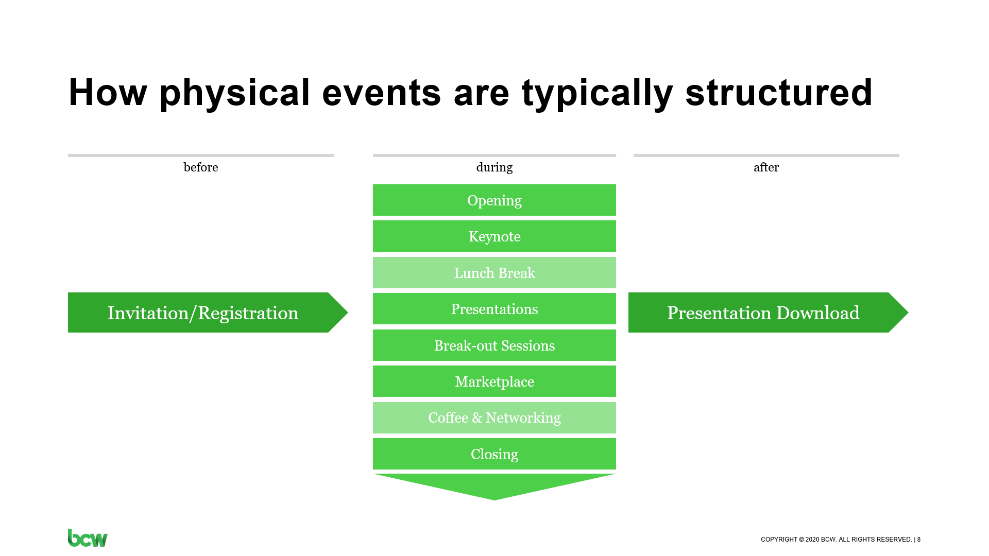One minute it was "You are what you experience.” Then came COVID-19. Meetings, events, concerts, festivals, conferences were first postponed, then cancelled. It’s been a long road, with everyone eagerly awaiting the time when we can safely return to the daily activities of normal life. And even if we are not there yet, we are already beginning to understand that the event business will change forever.
Status Quo & Current Challenges
The boundaries between offline and online are disappearing. Our future will be hybrid. Events will be hybrid. This also means that communicators must remain extremely flexible and fully equipped to help their clients adapt to new ways of engaging with audiences. COVID-19 has made work life even less predictable, even harder to plan than it already was. But COVID-19 has acted as a catalyst for digital transformation. Event organizers, digital planners and concept developers must be flexible, continue to remove obstacles to digital formats and respond to people's needs with new forms of experience.
Planning Virtual Events
Digital event formats differ significantly from face-to-face meetings; therefore, you have to conceive and structure them completely differently. Up until now, the planning of physical events used to take place largely "vertically": First the date of the event was determined, then the program was filled with as many agenda items as possible. We all know the discussions about whether to squeeze in another interactive format in the afternoon ("Mr. Mayer from sales would like a marketplace session"), or to use the time for another presentation ("brand marketing of brand XY would also like to say something") or to extend the coffee break ("networking is key"). The time before and after the physical event, on the other hand, was often merely used to register participants and send presentations.

In a digital world, a "horizontal" approach to planning is recommended, in which the actual event is shortened as much as possible. Less is more! Question each individual module: What is its real value? Does it have to be offered live or is it sufficient to prepare the content and provide it on-demand? You should delete modules without a clear value. You have the flexibility move on-demand modules to pre- and post- phases of the event.
Your next steps:
1) Download the full article with 7 key questions to plan virtual events
2) Download our Event Virtualization Planning Framework (registration required)
you might also like
Explore allGlobal
ESG Grows Up: From the 2019 Business Roundtable Commitment to the Biden Administration, What Steps Should Companies Take Today to Ensure They Aren’t Left Behind?
Global
It's Just Good Business: Understanding the Value of ESG
Global
Corporate Communications Leading Into the Next Normal
Global
Disruptive Purpose.